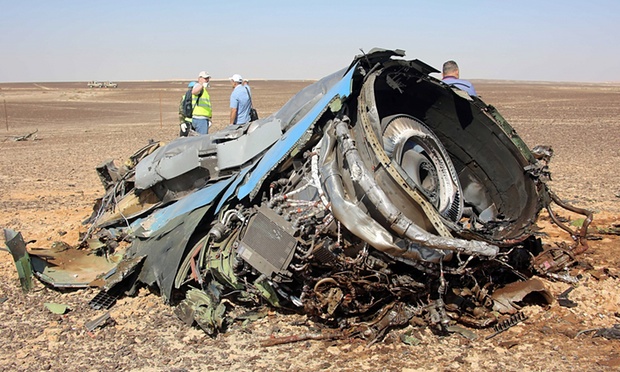 The Isis-linked group that claimed to have downed a Russian plane over the Sinai peninsula has surface-to-air missiles smuggled from Libya, but nothing powerful enough to hit a plane at cruising altitude, experts say.
The Isis-linked group that claimed to have downed a Russian plane over the Sinai peninsula has surface-to-air missiles smuggled from Libya, but nothing powerful enough to hit a plane at cruising altitude, experts say.The jihadi group, which calls itself Sinai Province, proved it posed a serious threat to low-flying aircraft when it brought down a military helicopter flying low over the area last year, and they could pose a serious threat to civilian airliners taking off and landing at the region’s airports.
However the Russian plane that came down with the loss of all lives on board this weekend started experiencing problems at a far greater height.
“The Islamic State and (regional) militant groups are not known to have anything that could hit planes at cruising altitude,” said Zack Gold, a regional expert focused on Sinai security. “The only way they could have been responsible is if they managed to get a bomb on the plane itself.”
The group’s claim of responsibility came near the first anniversary of their public pledge of allegiance to Isis. The past year has seen a shift in agenda from the grievances of the local Bedouin population to a more international focus, and an expansion of the recruiting base.
The group, based in the isolated northern Sinai desert, first emerged in 2011 as Ansar Bait al-Maqdis (ABM), or Champions of Jerusalem, after the fall of the authoritarian Egyptian president Hosni Mubarak created a security vacuum.
When Mubarak’s Islamist successor Mohamed Morsi was overthrown in mid-2013 they expanded their operations quickly. A string of attacks included the suicide bombing of an army checkpoint a year ago that killed more than two dozen people, one of the bloodiest ever attacks on the country’s military in peacetime.
Cells in mainland Egypt had also bombed police headquarters in Cairo and Mansoura, and tried to assassinate the country’s interior minister, but they have not been active in tourist hotspots of the south.
They benefited from regional insecurity to draw support and weapons from both Gaza to the east, and to the west a fast-disintegrating Libya, but as Isis expanded both its profile and its coffers the group’s commanders began exploring an alliance.
A deal was agreed in the summer of 2014 when a senior commander travelled to Isis headquarters in Raqqa, and spent several months there. He drew up plans including training trips to Syria for the group’s fighters.
“They also agreed that Isis will train ABM’s members because proper training is not possible in Egypt due to the presence of the military,” one source with knowledge of the representative’s visit told the Guardian at the time.
Journalists are banned from the Sinai region, making it hard to tease out the details of how their relationship to Isis or other extremist groups has developed since then, but the Sinai group is now drawing recruits from a larger base and pursuing a more international agenda.
With outside financial support, fighters are also reported to be putting more pressure on local residents, but there is little trust in the government either.
Heavy-handed efforts to undermine the group, including forced evictions and the destruction of hundreds of homes, have added to long-standing grievances about economic and political exclusion. Even government supporters in other parts of Egypt have long worried that harsh reprisals will only inflame the uprising.



